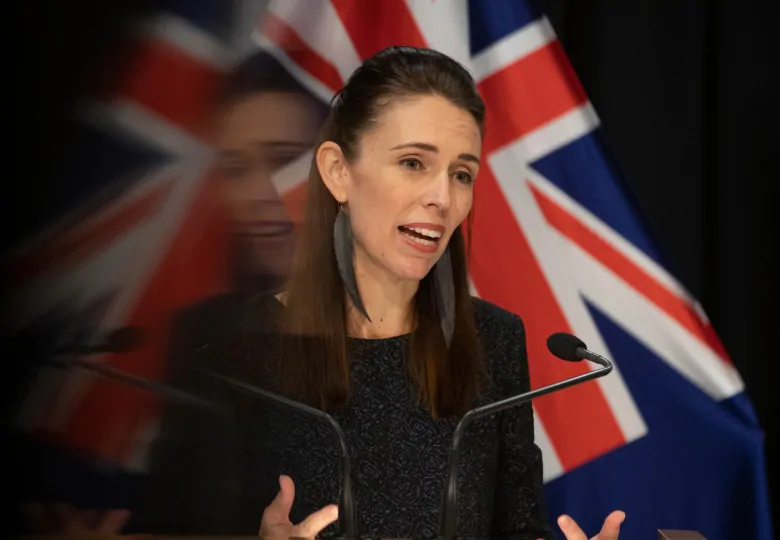Trump's move to cut WHO funding prompts world condemnation

Nations around the world reacted with alarm Wednesday after President Donald Trump announced a halt to the sizable funding the United States sends to the World Health Organization. Health experts warned the move could jeopardize global efforts to stop the COVID-19 pandemic.
At a briefing in Washington, Trump said he was instructing his administration to halt funding for WHO pending a review of its role “in severely mismanaging and covering up the spread of the coronavirus.” The United States is WHO’s largest single donor, contributing between $400 million and $500 million US annually to the Geneva-based agency in recent years.
Trump has repeatedly labelled COVID-19 the “Chinese virus” and criticized the UN health agency for being too lenient on China, where the novel virus first emerged late last year.
Outside experts have questioned China’s reported infections and deaths from the virus, calling them way too low and unreliable. An investigation by The Associated Press has found that six days of delays between when Chinese officials knew about the virus and when they warned the public allowed the pandemic to bloom into a public health disaster.
International pushback
The European Union on Wednesday said Trump has “no reason” to freeze WHO funding at this critical stage and called for measures to promote unity instead of division. EU foreign policy chief Josep Borrell said the 27-nation bloc “deeply” regrets the suspension of funds and added that the UN health agency is “needed more than ever” to combat the pandemic.
Borrell said “only by joining forces can we overcome this crisis that knows no borders.”
The EU has increasingly been critical of the Trump administration over the past years.
The novel coronavirus is spread by microscopic droplets expelled into the air or left on surfaces when people sneeze or cough. Worldwide, the pandemic has infected nearly two million people and killed more than 127,000, according to a tally by Johns Hopkins University.
Australian Prime Minister Scott Morrison said he sympathized with Trump’s criticisms of the WHO, especially its “unfathomable” support of re-opening China’s “wet markets,” where both live and freshly slaughtered animals are sold.
“That said, the WHO as an organization does a lot of important work including here in our region in the Pacific and we work closely with them,” Morrison told an Australian radio station.
“We are not going to throw the baby out of with the bathwater here, but they are also not immune from criticism.”
New Zealand Prime Minister Jacinda Ardern said the WHO was essential to tackling the pandemic.
“At a time like this, when we need to be sharing information and we need to have advice we can rely on, the WHO has provided that,” she said. “We will continue to support it and continue to make our contributions.”
Germany’s foreign minister, Heiko Maas, pushed back on Trump’s announcement.
“Placing blame doesn’t help,” he wrote on Twitter. “The virus knows no borders. We must work closely against COVID-19. Strengthening the UN, in particular the underfunded WHO, is a better investment, for example, to develop and distribute tests and vaccines.”
Devi Sridhar, chair of global public health at the University of Edinburgh, called Trump’s decision “extremely problematic,” noting that the chronically underfunded WHO is leading efforts to help developing countries fight the spread of COVID-19.
“This is the agency that’s looking out for other countries and leading efforts to stop the pandemic,” Sridhar said. “This is exactly the time when they need more funding, not less.”
Sridhar said Trump’s move was a short-sighted political decision that would likely have lasting consequences.
WATCH | Trump suspends WHO funding, touts plan to restart economy:
“Trump is angry, but his anger is being directed in a way that is going to ultimately hurt U.S. interests,” she said.
China, which has won WHO praise for its actions to curb the virus’s spread, urged the United States on Wednesday to fulfill its obligations to the WHO.
“This decision weakens the WHO’s capability and harms international cooperation,” Foreign Ministry spokesman Zhao Lijian said.
Critiques from home
In the United States, Trump’s decision has drawn criticism from American Medical Association President Dr. Patrice Harris, the U.S. health advocacy group Protect Our Care and Melinda Gates, co-chair of the Bill and Melinda Gates Organization, among others.
Dr. Harris called the move “a dangerous step in the wrong direction that will not make defeating COVID-19 easier.” Gates wrote on Twitter that removing funding to the WHO during a pandemic is “as dangerous as it sounds.”
Former national security advisor John Bolton took to Twitter to defend the decision, calling it the “correct response” in light of the organization’s failures.
Withholding US funding from <a href=”https://twitter.com/WHO?ref_src=twsrc%5Etfw”>@WHO</a> is the correct response to its coronavirus failures and Chinese influence. It should be a warning flare to the entire UN system that the US will not settle for poor performance <a href=”https://twitter.com/hashtag/COVID19?src=hash&ref_src=twsrc%5Etfw”>#COVID19</a>
—@AmbJohnBolton
The WHO did not respond to repeated requests from The Associated Press for comment, but Director-General Tedros Adhanom Ghebreyesus and other top WHO officials were expected to attend a news conference on the pandemic later Wednesday.
Many analysts have praised the initial response to the pandemic by WHO, which is being challenged as national interests collide with the international cooperation that UN agencies rely on.
But recently, many governments have split with WHO’s advice on issues of public health policy, notably on travel restrictions and whether the public should wear masks.


